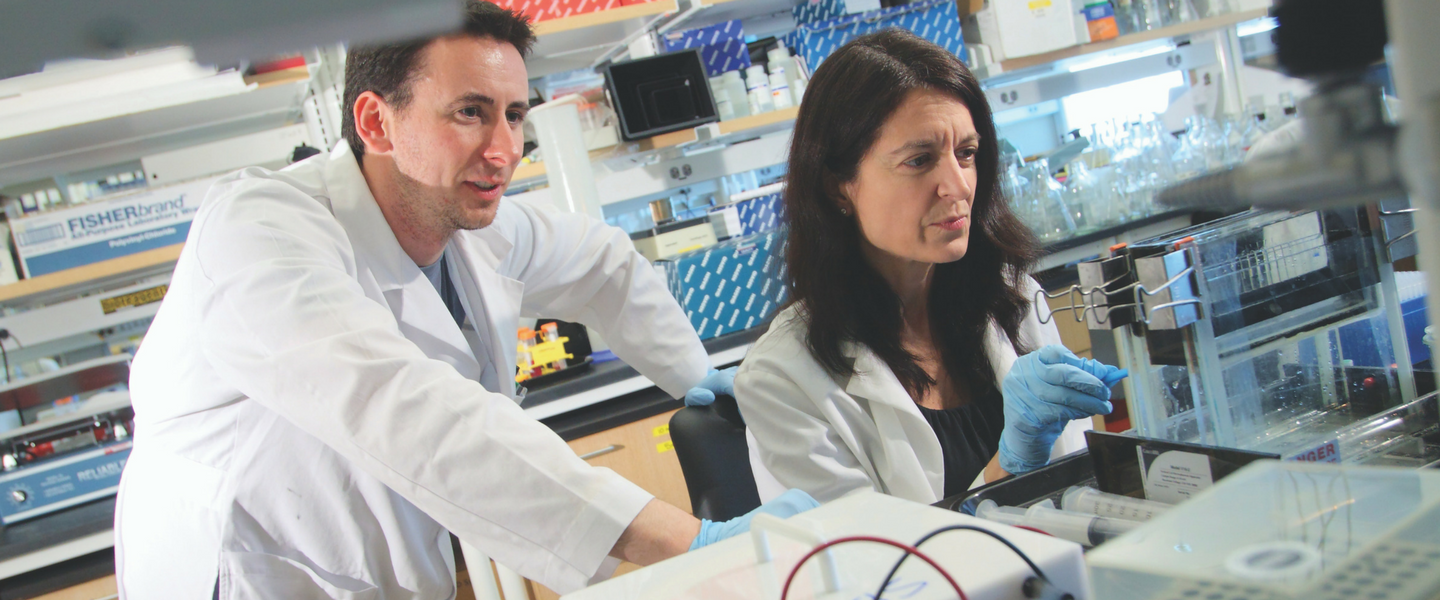Suzanne Conzen, MD named CRF 2018 Fletcher Scholar
Dr. Conzen, a Professor in the Department of Medicine and a member of the Committee on Cancer Biology at the University of Chicago, is a highly skilled medical oncologist treating patients with breast cancer as well as a molecular biologist working in cancer research. Her work has been critical in helping to identify the role of the human stress hormone, glucocorticoid receptor (GR) in breast cancer. Dr. Conzen’s lab discovered that high GR expression is associated with worse prognosis in so-called triple-negative breast cancer (TNBC). More recently she observed an unexpected improved prognosis in Estrogen Receptor positive breast cancer with high GR expression. As a Fletcher Scholar, Dr. Conzen will pursue a project titled: “Understanding Mechanisms of Glucocorticoid Receptor Modulation of Estrogen Receptor Activity in Breast Cancer.”
Dr. Conzen’s lab discovered that high GR expression is associated with worse prognosis in so-called triple-negative breast cancer (TNBC).
Human stress hormone (glucocorticoids) and our reproductive hormones such as estrogen are tightly linked. One of Dr. Conzen’s long-term goals is to understand how the estrogen hormone receptors (ERs) and glucocorticoid hormone receptors (GRs) interact in cancer cells. Hormone receptors are proteins expressed in breast cancer cells that receive signals from chemicals such as estrogen, a female hormone, and fromcortisol, our stress hormone. With this project, Dr.Conzen proposes to investigate how using specific human stress hormone modulators to manipulate Glucocorticoid Receptors can slow breast cancer growth, even in Estrogen Receptor positive breast cancers, where cancer cells have adapted to express a mutated estrogen receptor, and where the cancer cells no longer respond to anti-ER breast cancer treatments like tamoxifen.
Dr. Conzen’s work in understanding how glucocorticoid receptors stop estrogen receptor activity in breast cancer will help to develop new treatments for breast cancer patients and we hope it will provide valuable treatments for ER-positive breast cancer, adding significantly to the number of patients who can be helped by Dr. Conzen’s work in the relationship between human stress hormones and breast cancer.




